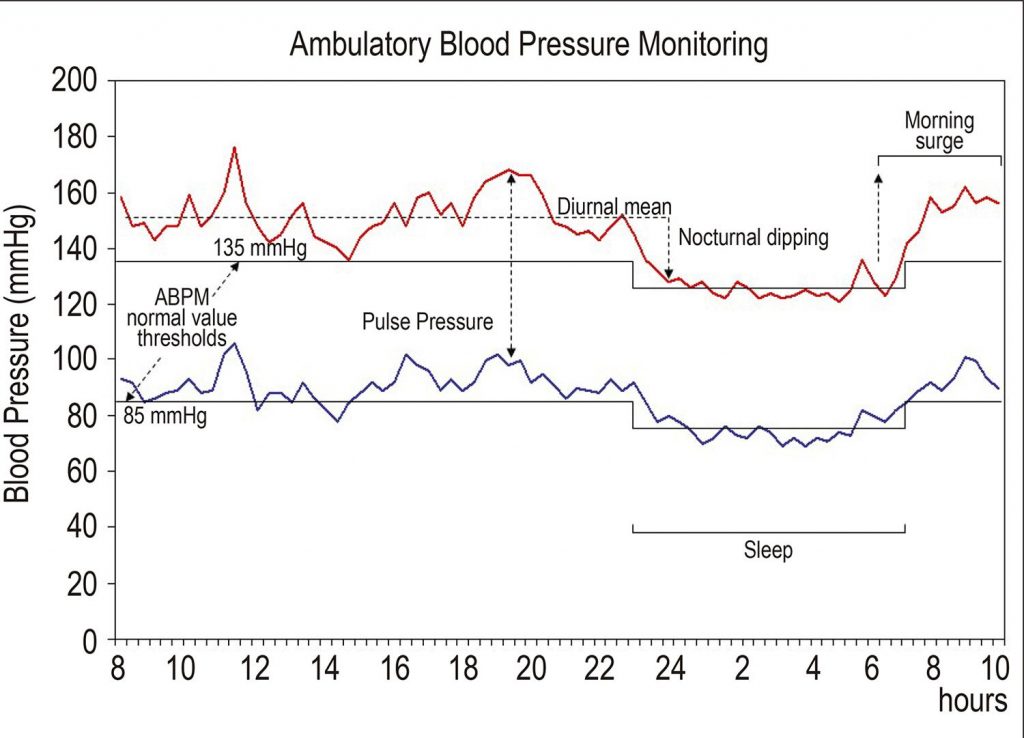Arq. Bras. Cardiol. 2020; 114(4): 716-717
Nocturnal Blood Pressure Dipping and the Autonomic Nervous System
This Short Editorial is referred by the Research article "Absence of Nocturnal Fall in Blood Pressure Detected by Ambulatory Blood Pressure Monitoring in Acute Chagas Disease Patients with Oral Infection".
Blood Pressure (BP) is continuously controlled by complex mechanisms involving the structural characteristics of the arterial system, the autonomic nervous system (sympathetic and parasympathetic) integrated with the baroreceptor and chemoreceptor systems, the circulating volume and several vasoconstrictor and vasodilator hormone systems with systemic and local actions. The integration of these systems ensures that the blood pressure undergoes minimal variations in small intervals, but if we consider the whole day, there are times, such as during sleep and when getting up in the morning, when there are more intense variations in blood pressure, always around mean values. Ambulatory blood pressure monitoring (ABPM) allows this phenomenon to be recorded in clinical practice.
shows the ABPM graphical record of a person with arterial hypertension, indicating the main parameters evaluated in this exam. One of the most important phenomena that can be assessed by ABPM is the physiological BP dipping during sleep. This physiological behavior of BP during sleep occurs because many vasoconstrictor mechanisms are “disarmed” in this condition; among them, the autonomic nervous system is one of the most important. A direct consequence of this modulatory effect of the autonomic nervous system is that, in diseases or clinical conditions in which the system is affected, the absence of this modulatory effect is expressed by the absence of BP dipping during sleep. In some cases, there may even be an increase in BP during sleep. This is the classic example of individuals with diabetes mellitus with autonomic neuropathy. – These individuals frequently have postural hypotension, elevated BP at bedtime and absence of BP dipping during sleep. , , , The absence of BP dipping during sleep implies a higher pressure load on the circulatory system and increases the risk of cardiovascular events in the long-term. , There are other clinical conditions associated with the absence of BP dipping during sleep, but this is not the case of this discussion.
[…]
18,582

